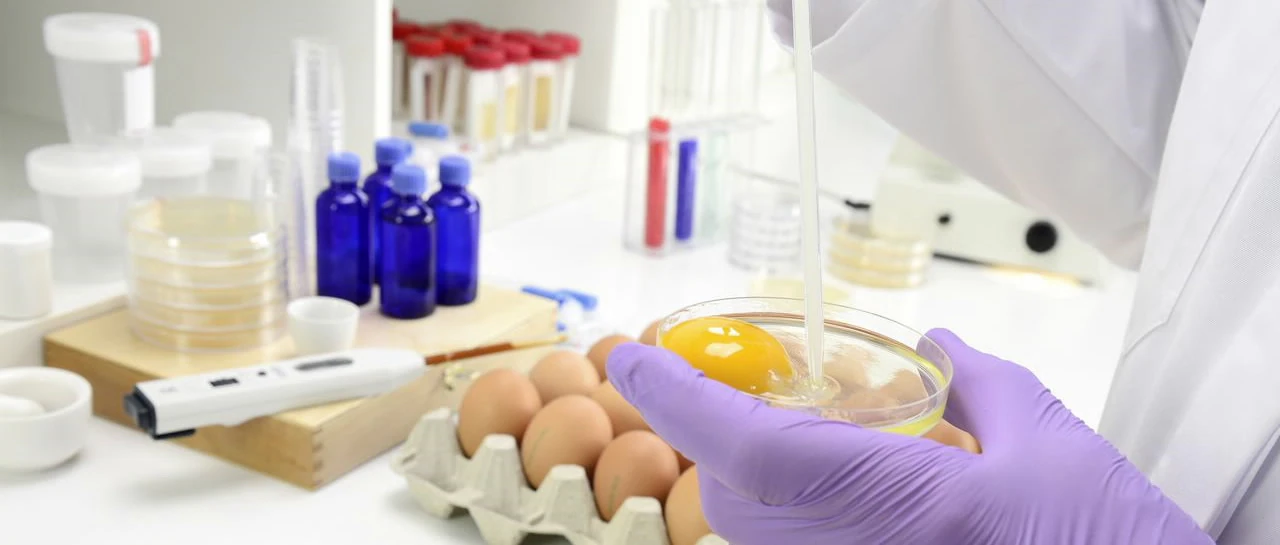USDA FSIS Phosphate Additive Profiling in Poultry
The USDA Food Safety and Inspection Service (FSIS) regulates phosphate additives used in poultry processing to ensure they are safe, effective, and comply with regulatory guidelines. This service involves a comprehensive analysis of phosphate additives aimed at ensuring their proper use in poultry products. Phosphate additives play a crucial role in maintaining the quality and shelf-life of meat products by enhancing water-holding capacity, improving texture, and reducing microbial growth.
Phosphates are commonly used in the poultry industry to improve the yield of meat products during processing. The FSIS phosphate additive profiling service includes detailed analysis that ensures these additives do not exceed allowable limits as defined by regulatory standards such as 9 CFR Part 318. This process is critical for maintaining food safety and ensuring compliance with international and national regulations.
The testing procedure involves a series of steps, including sample preparation, instrumental analysis using high-performance liquid chromatography (HPLC), and mass spectrometry techniques to identify and quantify the various phosphate compounds present in poultry products. This comprehensive approach allows for precise measurement and comparison against established standards. The results provide valuable insights into the effectiveness of the additives while ensuring they adhere to strict regulatory limits.
Understanding the exact composition of phosphate additives is essential for quality control, food safety, and compliance with regulations. By profiling these additives, we can ensure that they are used appropriately in poultry products, thereby maintaining product integrity and consumer confidence. This service supports the quality management efforts of food processors by providing detailed reports on additive levels and their impact on final product characteristics.
The FSIS phosphate additive profiling test is conducted according to rigorous standards set forth by regulatory bodies like the USDA and other international organizations such as ISO (International Organization for Standardization) and EN (European Norms). Compliance with these standards ensures that the testing process is consistent, accurate, and reliable. This level of precision is vital in maintaining food safety and quality across the industry.
Our laboratory uses advanced analytical techniques to ensure accurate results. The HPLC and mass spectrometry methods used are highly sensitive and specific, allowing for precise quantification of even trace amounts of phosphate additives in poultry products. These tests not only help in meeting regulatory requirements but also provide valuable data that can be used to optimize processing conditions and improve product quality.
The results from the FSIS phosphate additive profiling test can significantly impact various aspects of food production, including yield optimization, shelf-life enhancement, and compliance with safety standards. By identifying the exact composition and concentration levels of phosphate additives, processors gain valuable insights that can lead to improved product consistency and enhanced customer satisfaction.
In conclusion, the USDA FSIS phosphate additive profiling test is a critical tool in ensuring food safety, quality, and regulatory compliance within the poultry industry. Its application helps maintain consumer trust and ensures that processed poultry products meet high standards of safety and quality.
Benefits
Compliance with USDA regulations is crucial for food processors to ensure safe and high-quality products. The FSIS phosphate additive profiling test provides several benefits:
- Regulatory Compliance: Ensures that phosphate additives are used within allowable limits as specified by 9 CFR Part 318.
- Safety Assurance: Identifies potential safety issues related to improper use or overuse of phosphate additives.
- Quality Enhancement: Helps in optimizing the use of phosphate additives for better product quality and texture.
- Yield Maximization: Ensures efficient use of raw materials, leading to increased yield from processed poultry products.
- Consumer Trust: Maintains high standards that enhance consumer confidence in food safety and quality.
The test results are valuable for various stakeholders within the industry, including quality managers, compliance officers, R&D engineers, and procurement teams. They provide actionable data that can be used to improve processes and maintain regulatory compliance.
Industry Applications
| Application | Description |
|---|---|
| Poultry Processing | Evaluating the effectiveness of phosphate additives in enhancing meat quality and yield. |
| Food Safety | Detecting potential safety concerns related to improper use or overuse of phosphate additives. |
| Quality Control | Monitoring the consistency of phosphate additive levels across different batches of processed poultry products. |
| Application | Description |
|---|---|
| R&D Optimization | Providing data to optimize the use of phosphate additives for better product quality and texture. |
| Supply Chain Management | Maintaining consistent phosphate additive levels across the supply chain to ensure uniform product quality. |
Why Choose This Test
The USDA FSIS phosphate additive profiling test is a critical component of food safety and quality assurance in the poultry industry. Here are some reasons why choosing this test is essential:
- Precision: Our laboratory uses advanced analytical techniques such as HPLC and mass spectrometry to ensure precise quantification of phosphate additives.
- Regulatory Compliance: Ensures that processed poultry products meet the strict regulatory standards set by USDA and other international organizations like ISO and EN.
- Data Integrity: Provides reliable data that can be used for various purposes, including process optimization and quality control.
- Consumer Trust: Maintains high standards of food safety and quality that enhance consumer confidence in processed poultry products.
- Optimized Yield: Ensures efficient use of raw materials by identifying the optimal levels of phosphate additives for enhanced yield.
- Consistent Quality: Provides consistent results across different batches, ensuring uniform product quality and texture.
The test is particularly beneficial for food processors who are committed to maintaining high standards of safety and quality. By choosing this service, they can ensure that their products meet regulatory requirements while also optimizing the use of phosphate additives for better performance.





